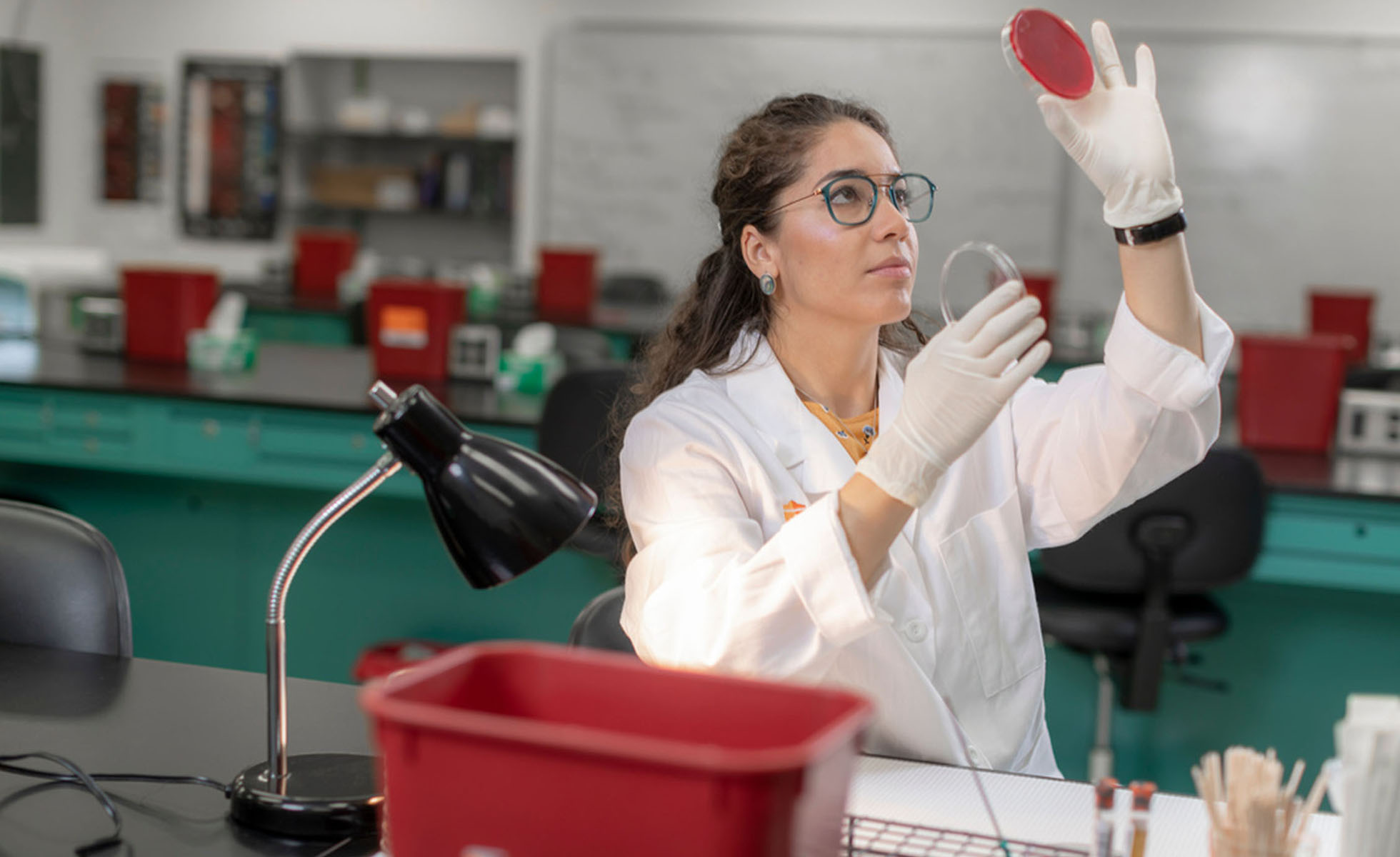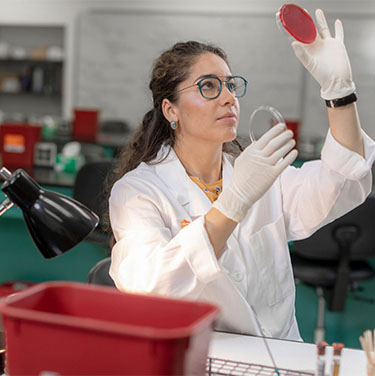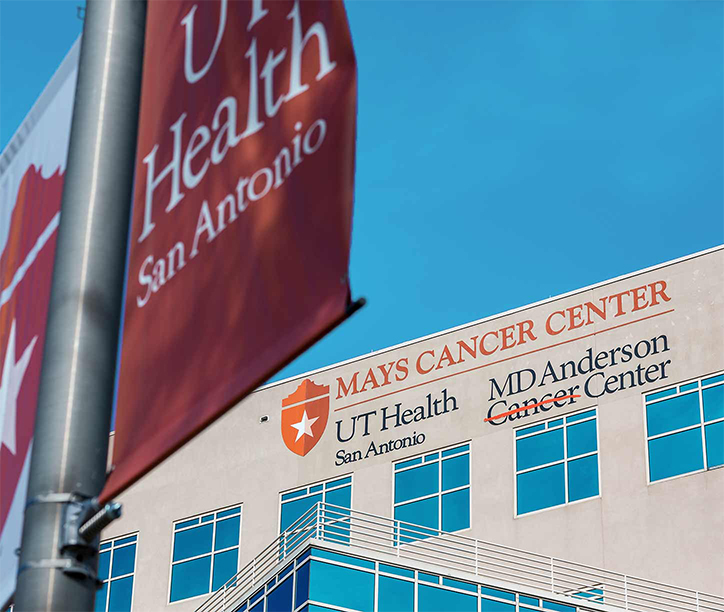

Cancer Research Training and Career Enhancement Core
- About Us
-
Cancer Care
-
Our Cancer Programs
- Adolescent and Young Adult Cancer Program
- Blood Cancer & Hematological Malignancy Program
- Blood Disorder (Hematology) Program
- Breast Cancer Program
- Cancer Genetics Program
- Cancer Risk Reduction and Education Clinic
- Cardio-Oncology Program
- Childhood Cancer Survivorship Program
- Endocrine Tumor Program
- Eye Cancer Program
- Gastrointestinal (GI) Cancer Program
- Genitourinary Cancer Program
- Gynecologic Oncology Program
- Head and Neck Cancer Program
- Liver Tumor and Cancer Program
- Lung Cancer Program
- Neuro-Oncology (Brain Tumor) Program
- Neurofibromatosis Program
- Pediatric Neuro-Oncology Program
- Pediatric Oncology Program
- Pediatric Sarcoma Program
- Pediatric Thrombosis Program
- Radiation Oncology
- Sarcoma Cancer Program
- Skin Cancer Program
- Supportive Cancer Care Program
-
Screening and Diagnosis
- Cervical Cancer Screening Guidelines
- Colorectal Cancer Screening
- Endometrial (Uterine) Cancer Screening Guidelines
- Hepatitis and Cancer
- HPV Vaccine and Screenings
- Liver Cancer Guidelines
- Lung Cancer Screening
- Mammogram
- Ovarian Cancer Screening Guidelines
- Prostate Cancer Screening Guidelines
- Skin Cancer Screenings
- Sun and Skin Safety
- Tobacco Use and Cancer
- Skin Cancer Screenings
- Cancer Genetics Program
- Cancer Survivorship Program
- Cancer Treatments
- Conditions
-
Our Cancer Programs
- Clinical Trials and Research
- Donate and Volunteer
- Education
- Patients and Families
- Appointments
- Doctors and Locations
-
Community Outreach and Engagement Program
- Message from COE Leadership
- South Texas Cancer Burden and COE Areas of Work
- Our COE Impact
- COE Community Advisory Board
- COE Publications
- Avanzando Caminos (Leading Pathways) Study
- Estudio Avanzando Caminos (Leading Pathways)
- San Antonio Firefighters Cancer Prevention Program
- STAR Immunotherapy Study
Our Cancer Research Training and Career Enhancement core is key to maintaining and expanding these efforts. We are engaging emerging cancer researchers earlier and making a lasting impact on their careers.
As scientific discovery gives way to potential new cancer care methods, demand is high for skilled researchers. Mays Cancer Center, home to UT Health San Antonio MD Anderson Cancer Center, addresses this need.
Exceptional medical education has always been at the foundation of who we are. The Cancer Research Training and Career Enhancement core leverages this expertise while also providing training opportunities. We reach out to help aspiring young scientists by explaining cancer research opportunities. And we support junior faculty to achieve important early-career milestones.
Training opportunities for aspiring researchers
We provide talented high school and college students with cancer research experience, which is ideal for those interested in a future career serving cancer patients. We encourage individuals from underrepresented populations to participate in our programs.
Our efforts include:
- Summer research program: We introduce the basic principles of cancer research. Participants learn from faculty in a variety of disciplines. Students develop new skills, primarily at the bench, and they also receive an opportunity to present their research findings to their peers and other faculty.
- Career guidance: Our team counsels students as they prepare for college and beyond. We provide shadowing opportunities where students interact with our researchers to find out more about the career path.
For more information, contact the Education Office at mcceducation@uthscsa.edu.
Innovative training activities for graduate students and postdoctoral researchers
We provide experiences that help students and researchers excel in the next steps of their education. Our curriculum emphasizes basic and translational research. We also foster collaboration with UT Health San Antonio faculty and among academic departments.
These efforts include:
- Interdepartmental learning: We encourage students enrolled in UT Health San Antonio graduate programs to consider careers in cancer research. Furthermore, we recruit from other institutions in San Antonio. For instance, we have recruited computer science students to become biostatisticians. These specialists help researchers manage the increasingly complex data sets needed to lead cancer research.
- Fund-seeking assistance: We help students pursue extramural funding to start or support research-related activities. Our team discusses a broad range of potential funding sources. Opportunities for funding are available through National Institute of Health, Department of Defense and American Cancer Society grants as well as industry-sponsored initiatives.
- Networking events: We are building a sense of community among trainees, some of whom have no academic department affiliation. Our team coordinates centralized meetings and symposiums. These events enable students and UT Health San Antonio faculty to exchange knowledge while building professional connections.
- Financial support: We offer travel assistance for national meetings and poster printing services for presentations. In addition, the summer research programs have financial support.
Research faculty development
We help research fellows (postdoctoral scholars) and assistant professors become independent, nationally funded investigators.
Our offerings include:
- Specialized training: We help health care professionals gain proficiency in clinical and translational research with a flexible degree program. This program, for individuals who have already earned their MD or PhD, provides specific training in human subjects research.
- Mentoring opportunities: Experts from our nationally renowned basic science and cancer programs serve as mentors to developing researchers. Mentors help junior faculty and fellows expand their knowledge and prepare for the next steps in their careers.
- Grant-seeking support: Junior faculty can access resources to assist in the preparation of national research grants. We also provide support for generating critical preliminary data. This support is one of the many ways we help junior faculty continue advancing their careers.
More information about our education and career enhancement activities
Our Cancer Research and Career Enhancement program is part of our mission to provide innovative models for clinical education. This work is made possible in part through funding from the:
- National Cancer Institute (NCI): We are the only NCI-designated cancer center in Central and South Texas. Our commitment to cancer research excellence includes outreach, education and professional development opportunities. Find out more about NCI designation.
- Cancer Prevention and Research Institute of Texas (CPRIT): UT Health San Antonio has been working with CPRIT for years to advance cancer research training in Texas. CPRIT is one of the state’s lead agencies for cancer research and prevention programs. Find out more about CPRIT.
- Other organizations: We are grateful for funding provided by many other organizations, including:
- Industry groups, such as pharmaceutical companies
- The federal government, including the National Institutes of Health (NIH)
- Nonprofit organizations
- Nongovernmental organizations (NGOs)
- Private foundations
Additional learning opportunities are available through our education and training programs.
Explore Mays Cancer Center
Find out more about how our research programs are helping us advance cancer care in South Texas and across the country.
Learn more about our NCI designation
Our National Cancer Institute (NCI) cancer center designation brings leading research programs. It also extends the range of our clinical trial offerings, for eligible patients.
Meet our team
Our team includes cancer experts from different medical specialties who share a commitment to delivering precise, personalized care. Contact the cancer education office at mcceducation@uthscsa.edu.

 Close
Close
